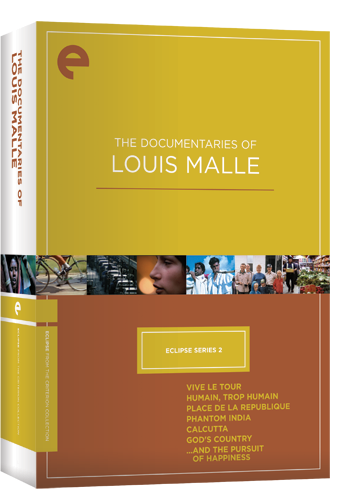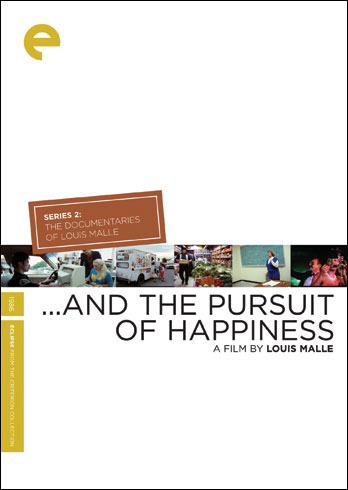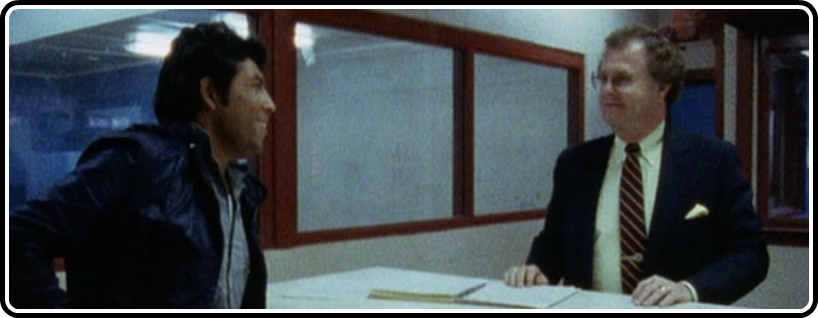
After spending an adequate but not obsessive amount of time over the past two weeks perusing the marketing campaigns of our two major political parties in advance of the upcoming election, I found myself in the mood to choose for my weekly Eclipse review something non-fictional that pertains to current events. In a collection consisting largely of older films based on a fictional narrative approach, that might have led to a fruitless search, but fortunately, that library also includes Eclipse Series 2: The Documentaries of Louis Malle. One of the titles in that box, …And the Pursuit of Happiness, quoting from the USA’s Declaration of Independence, has just the right resonance to suit my reality-based mindset these days, so I popped it in the ol’ DVD player this weekend to see what Louis Malle had to say about the subject of immigration, specifically as it applied to people coming from other nations to make a new life for themselves here in the United States of America.
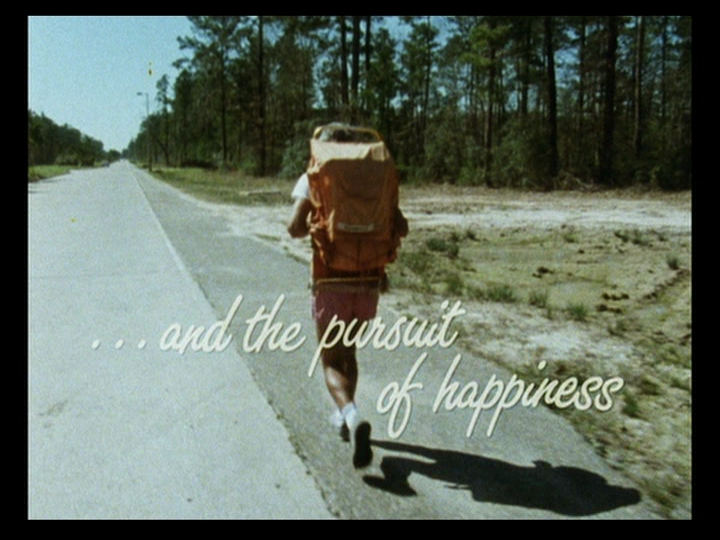
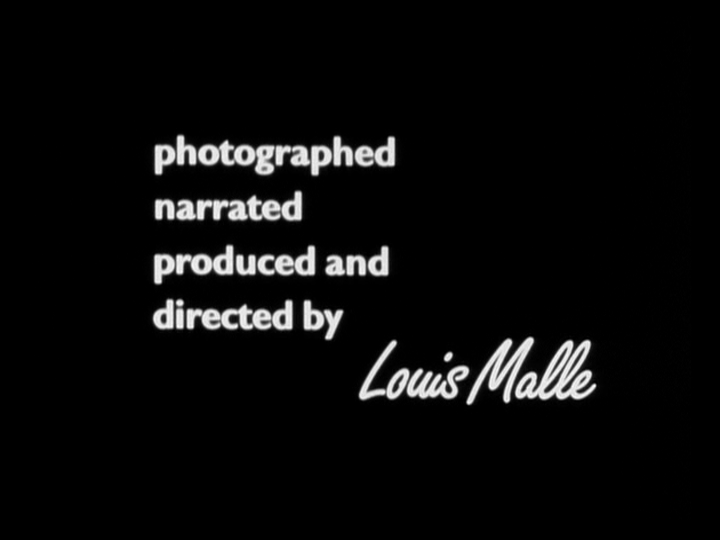
The Malle documentaries set covers a time span longer than the typical Eclipse box, beginning with 1962’s Vive le Tour as the Nouvelle Vague was at its peak and ending with this film, released in 1986, during the height of Reaganism. That’s quite a wide swath of cultural history to traverse in one anthology of films, and Malle himself only added to the complexity with his forays from Europe (Vive le Tour, Humain, Trop Humain and Place de la Republique) to India (Phantom India and Calcutta) and finally to the USA (US (God’s Country and this film.) This collection amply demonstrates Malle’s relentless curiosity and brave willingness to redefine himself in following the lead of his personal experience in setting the agenda for whatever film-making project came up next on his docket. Having said that, …And the Pursuit of Happiness is probably about as straightforward and cinematically simplistic as anything Malle ever released. Basically, it’s a no-frills compilation of talking heads interviews that he conducted over the course of several months following the completion of God’s Country, as he continued his travels across America, specifically seeking out the stories of recent immigrants from various nations (mainly Asia, Africa and Central America) whose stories also shed light on his own decision to set down some roots in the US. In the context of the Eclipse Series, Malle comes across as a forerunner of Jean-Pierre Gorin, whose own Eclipse set also focuses on similar themes of being a stranger in a strange (in every sense of the word) land.
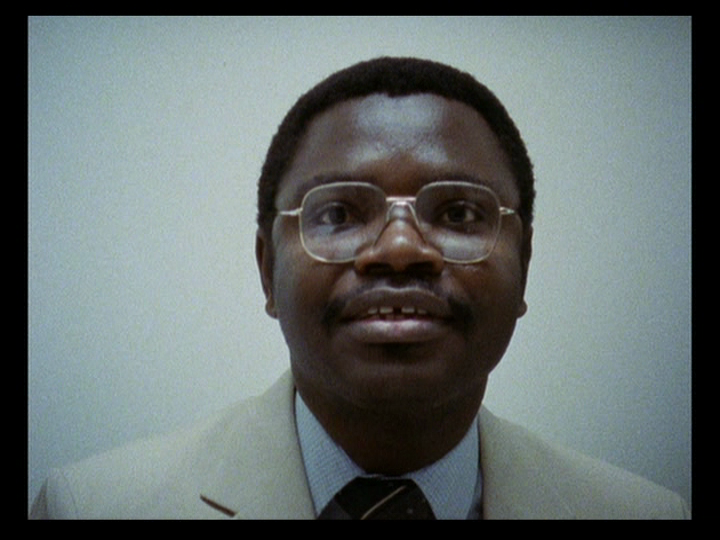
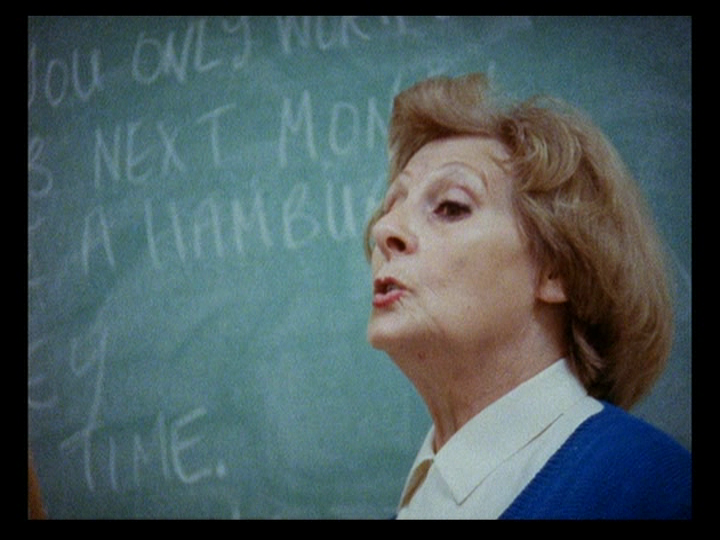
Indeed, a first time viewer may be struck by how “TV-like” …And the Pursuit of Happiness seems. Thus it’s no surprise to learn from the liner notes that the film was made at the behest of HBO, in its 1980s incarnation, well before that network had settled on its highly successful formula of high production value, boundary pushing series that set the tone for pop culture entertainment. The occasion that the film was originally intended to commemorate was the centennial celebration of Ellis Island, the original entry point during the USA’s earlier waves of immigration in the 19th and early 20th centuries. Malle wasn’t interested in doing a Ken Burns-style historical retrospective. Instead he chose to explore what was happening in the mid-80s, and that results in a fascinating time capsule that preserves the immigration debates of its era as a potentially useful template that we can use in gauging the quality of discourse on this issue in our own times.
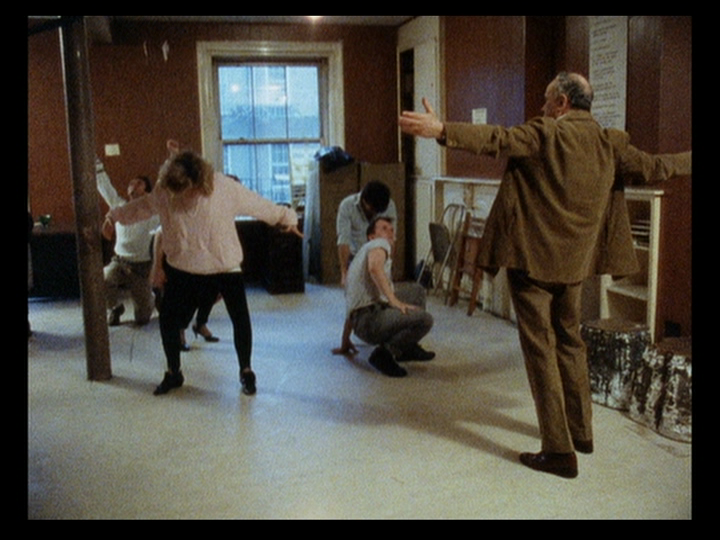
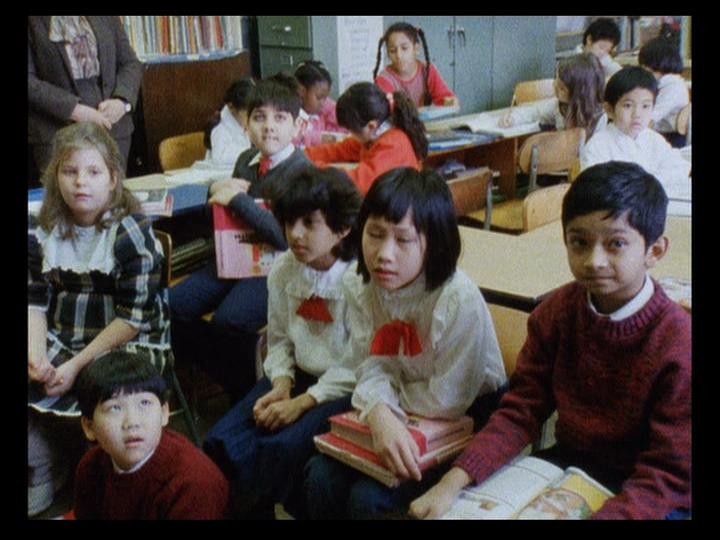
The bulk of time spent in …And the Pursuit of Happiness is spent examining the individual stories of various personalities whose ability to hold our interest will almost certainly vary from person to person. Fortunately, and knowingly since Malle was by this point a very experienced and intelligent director, he never gets hung up on any particular story for very long. He keeps things moving, hitting the highlights and giving his characters just enough time to speak their minds before bogging down in tedium. One of the interviewees I enjoyed the most was Boris Leskin, a Russian stage actor who left a privileged and prosperous life behind in order to become an anonymous and presumably underpaid instructor of method acting in New York City. He also gives time to reflect on the struggle that immigrant communities go through in trying to preserve elements of their own culture even as they press their own children to assimilate and succeed in the climate of economic opportunity and material prosperity that drew so many of them here in the first place.
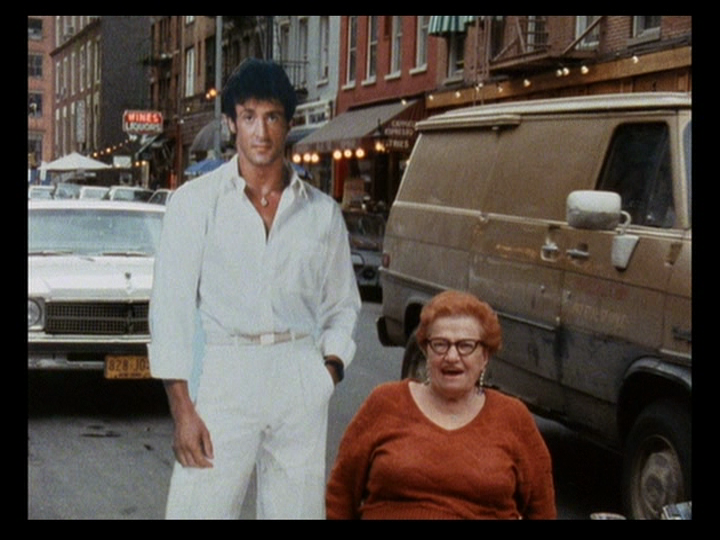
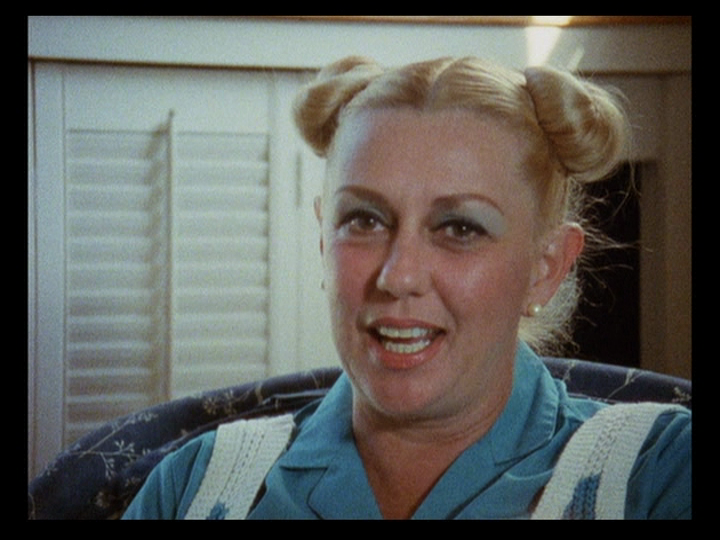
The general tone that Malle strikes in …And the Pursuit of Happiness is persistently positive, reflecting the optimism and determination that his subjects give voice to in telling their stories. For the most part, those we see on camera have found the happiness and fulfillment they came looking for.
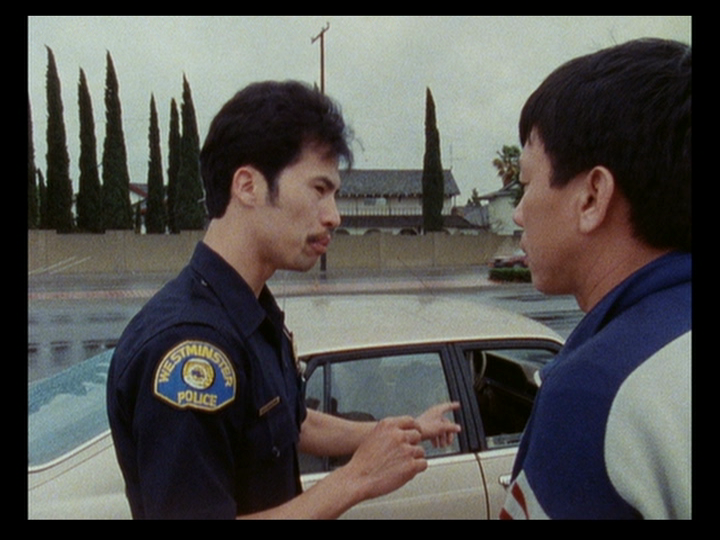
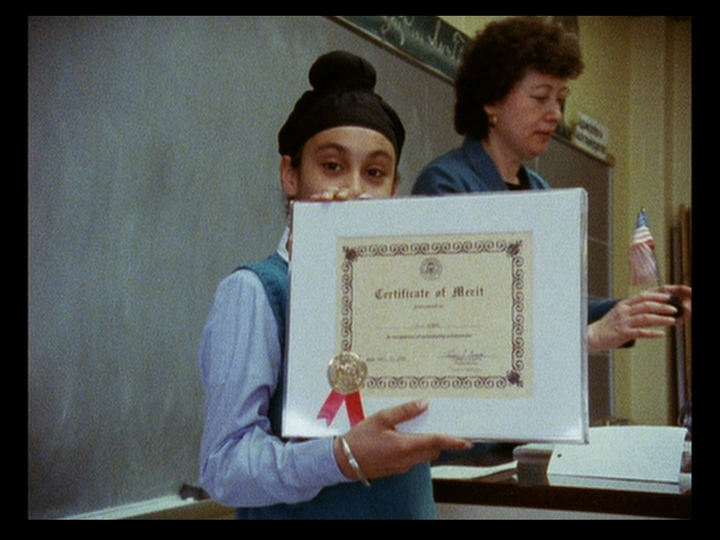
But as the film proceeds, we’re made privy to the struggles and sacrifices that are part of that pursuit. The homesickness that comes with leaving one’s native land (and many precious relationships) behind; the patient endurance of resentment and discrimination they experience as they settle into their respective communities; the long hours and dedicated effort required to not only fit in but to achieve at a high level, both economically and academically. What we’re seeing in this film is, in some ways at least, the dawning of the “smart Asian” stereotype as an influx of new immigrant students seriously raised the bar when it came to science and math standards in the US education system.
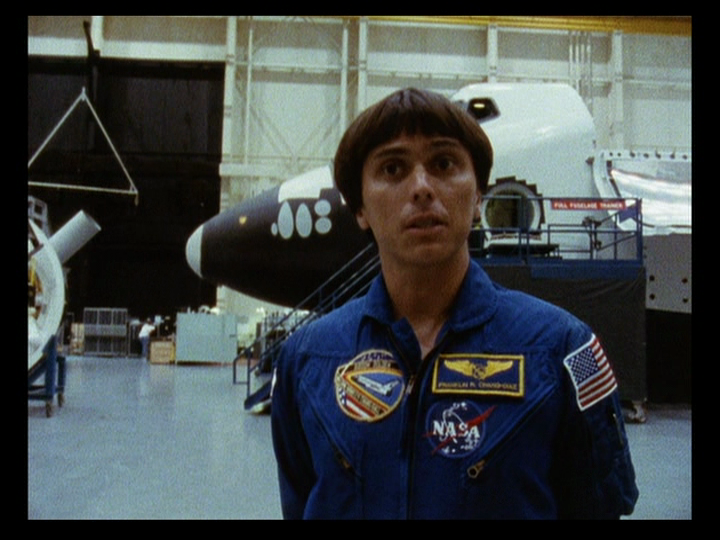
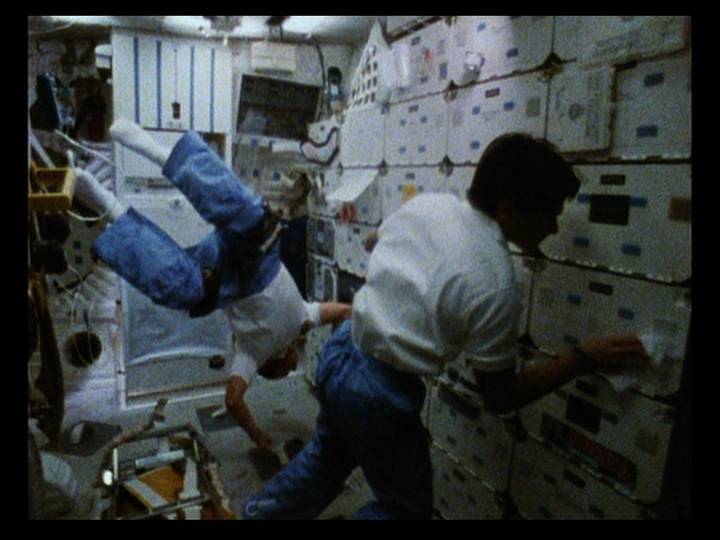
Another excellent sequence features Franklin Chang-Diaz, a Costa Rican with some Chinese ancestry in his lineage, who came to the US when he was 17 years old, earned scholarships and grants that resulted in a PhD. and a spot in NASA’s Space Shuttle Program, in which he flew seven different missions. His accomplishments eventually resulted in him being enshrined in the United States Astronaut Hall of Fame.
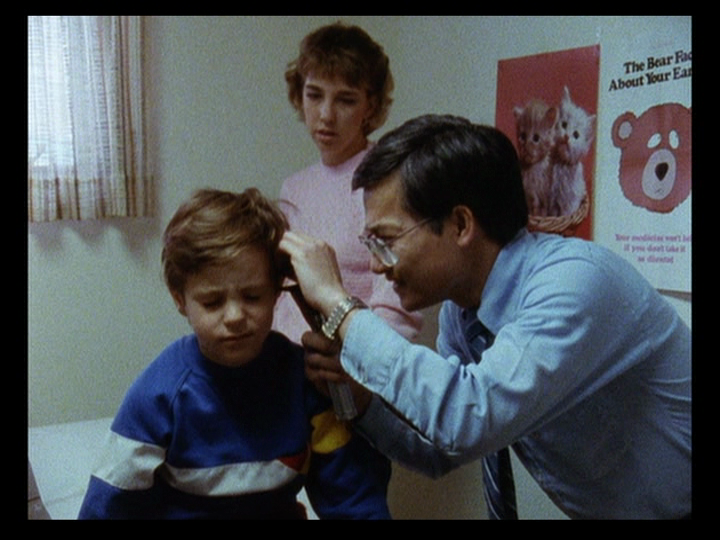
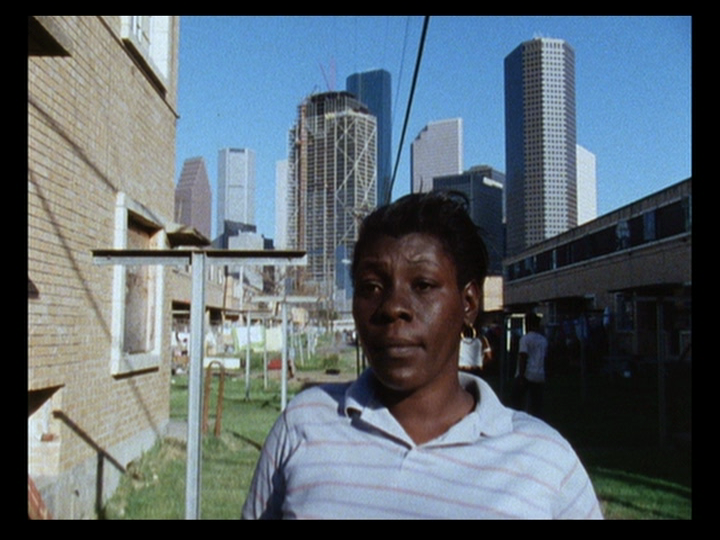
More mundane, but no less inspiring, occupations are also highlighted. A Vietnamese doctor who landed in the cold Nebraskan heartland as a refugee speaks of his commitment to that community even after most of his fellow exiles moved on to warmer climates as soon as it was feasible for them to do so. Malle also sheds light on the tensions and sense of competition felt by “rival” minority communities as waves of Asian families moved into urban low-income housing, displacing African-American families who had lived there for some years and now sensed a conspiratorial effort to push them out so that the highly coveted downtown property could be leveled and developed into luxury residential suites.
[youtube http://www.youtube.com/watch?v=ik1KCn8aJDI&version=3&hl=en_US]
The clip above features the Caribbean poet Derek Wolcott offering his philosophical thoughts on American democracy and citizenship. It’s a fortuitous capture by Malle, as Wolcott, relatively unknown at the time, went on to win a Nobel Prize in Poetry six years after this segment was filmed.
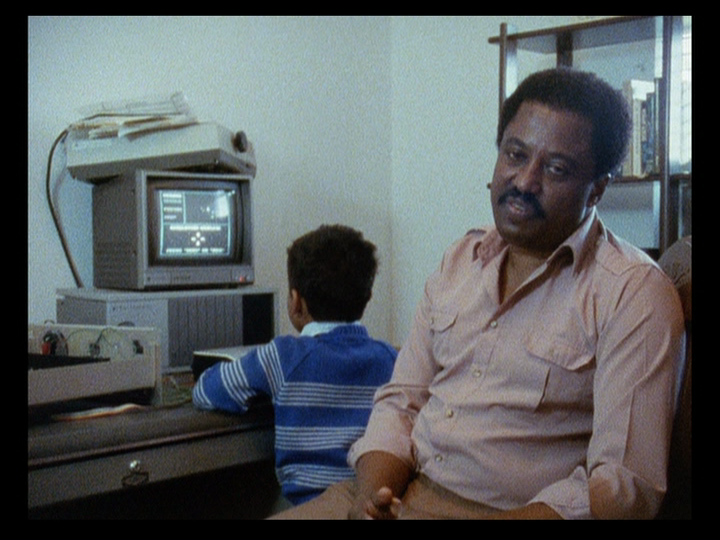
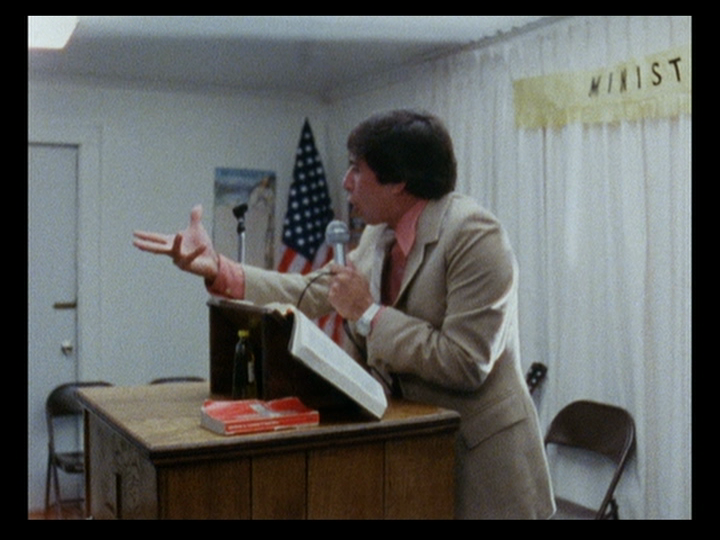
Immigrants whose path led them to jobs as diverse as working in the emerging computer technology industry and the long-established realm of itinerant evangelism also receive their brief moment in Malle’s spotlight. There’s also an extended piece on the topic of illegal immigration, using footage shot on the US/Mexican border crossing at Tijuana. It’s appalling to hear the frustrations voiced by various people involved in managing the situation as they complain about the lack of progress in figuring out a solution to the problem, knowing that 25 years later, no significant resolution or anything close to a cultural consensus has yet been developed. Though the negative consequences of illegal immigrant exploitation are clearly spelled out by laborers, employers and activists themselves, nobody in a position of authority seems to have been listening, or at least they’re just not capable of effectively addressing the crisis.
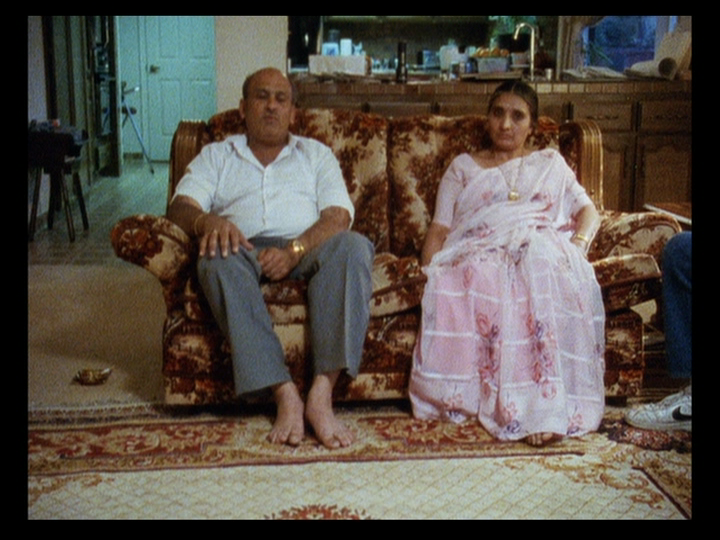
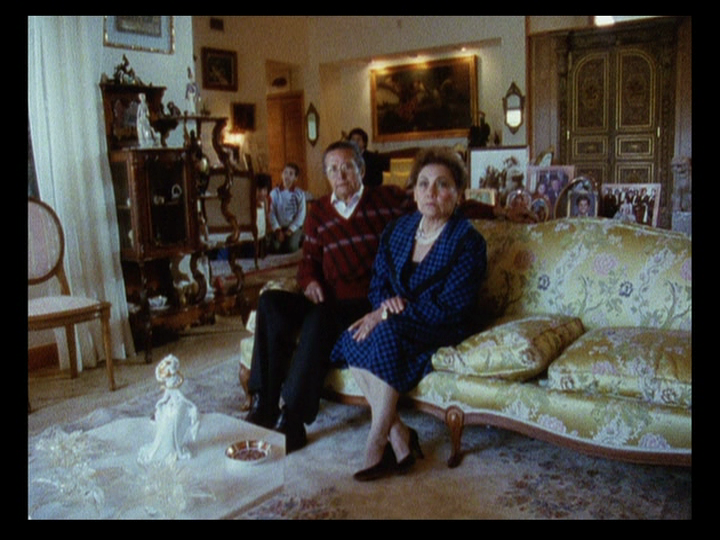
The final segment of …And the Pursuit of Happiness focuses on families who came to the United States under dramatically different circumstances. First we meet the Patel family, a fairly affluent clan who staked their claim to a big slice of the economic pie by running a hotel near San Jose, California. Papa Patel offers a great example of the patriarch who seeks to balance his traditional family values (marrying within their ethnicity, raising children who will care for them in old age rather than send them to nursing homes) with newfound comforts. The tricky equilibrium is epitomized in the kitchen of their cozy suburban residence, with its Hindu altar alongside a classic indoor American barbecue pit.
And touching upon the political controversies of its time, Malle concludes the final documentary of his impressive career with a look at survivors on both sides of the brutal strife and warfare that tore through several Central American nations throughout the late 70s and early 80s. First we meet a man who was paralyzed after a beating by government sponsored thugs in El Salvador, who was even then facing deportation after the US government refused his request for political asylum. Then we cross over the line of conflict to meet one of Nicaragua’s recently deposed military rulers, General Jose Somoza, brother of former President Anastasio Somoza who had been ousted by the Sandinistas in 1979 and assassinated in Paraguay the following year.
Given his brother’s grim fate, it’s not at all surprising to see Jose in a perpetual state of paranoid apprehension any time he senses the camera on him. But in the spirit of Yankee independence and individualism, in this case it turns out that Father really doesn’t know best – or at least, his discomfort isn’t enough to obstruct Malle’s documentary pursuits. That’s because the General has a son who practically surprises himself by admitting on camera that the freedom he and his own children have experienced, even after giving up the prestige and privilege of their high ranking in Nicaraguan society, led them to a more genuine life than what they’d known in their former home. It’s a remarkable flash of insight, and a timely reminder as we find ourselves inundated with political promises and rhetorical slogans, illuminating the elusive transience and non-material nature of that strangely chimeric phantom we call the American Dream.


